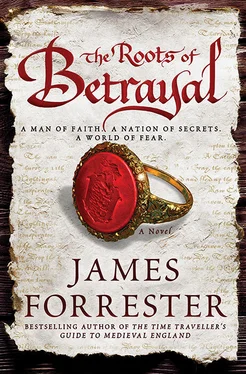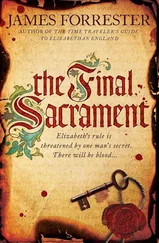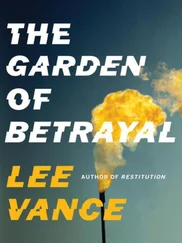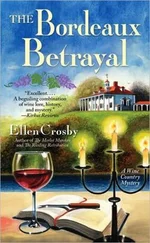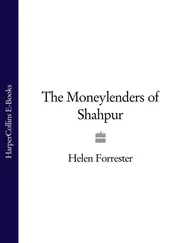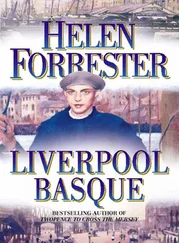James Forrester - The Roots of Betrayal
Здесь есть возможность читать онлайн «James Forrester - The Roots of Betrayal» весь текст электронной книги совершенно бесплатно (целиком полную версию без сокращений). В некоторых случаях можно слушать аудио, скачать через торрент в формате fb2 и присутствует краткое содержание. Жанр: Исторический детектив, на английском языке. Описание произведения, (предисловие) а так же отзывы посетителей доступны на портале библиотеки ЛибКат.
- Название:The Roots of Betrayal
- Автор:
- Жанр:
- Год:неизвестен
- ISBN:нет данных
- Рейтинг книги:5 / 5. Голосов: 1
-
Избранное:Добавить в избранное
- Отзывы:
-
Ваша оценка:
- 100
- 1
- 2
- 3
- 4
- 5
The Roots of Betrayal: краткое содержание, описание и аннотация
Предлагаем к чтению аннотацию, описание, краткое содержание или предисловие (зависит от того, что написал сам автор книги «The Roots of Betrayal»). Если вы не нашли необходимую информацию о книге — напишите в комментариях, мы постараемся отыскать её.
The Roots of Betrayal — читать онлайн бесплатно полную книгу (весь текст) целиком
Ниже представлен текст книги, разбитый по страницам. Система сохранения места последней прочитанной страницы, позволяет с удобством читать онлайн бесплатно книгу «The Roots of Betrayal», без необходимости каждый раз заново искать на чём Вы остановились. Поставьте закладку, и сможете в любой момент перейти на страницу, на которой закончили чтение.
Интервал:
Закладка:
“The beast is dead,” said the lawyer, his voice betraying his excitement and relief. The stable boy with the lantern held it close to the corpse.
Latham looked down at the bloody torso. It had been bad butchery: he could see a rib and pink organs. He felt sick. The man was dead-and these fellows were smiling and congratulating themselves. But what were they doing here? What was he doing here? Who were all these people around him, talking, laughing, and shouting? Only when the innkeeper called for silence and demanded to know the identity of the dead man did Latham catch the one strand of purpose left to him.
“He is a spy,” he gasped. “A Catholic conspirator.” As he spoke he knelt down and felt the side pockets of the bloody jerkin. Finding nothing, he started to undo the jerkin itself. His hands became smeared with the man’s warm blood, fumbling inside the gore-soaked linen of his shirt. And then he felt a folded paper. He took it out and slipped it into his own pocket. Standing up, he wiped his brow, leaving the others to drag the body away into the yard.
3
Wednesday, May 3
Clarenceux walked over Fleet Bridge and westward along Fleet Street, toward his house. It was late morning. The bright sun shone on the houses on the north side of the street. His house was on the south side. He looked up at it: a typical, three-story merchant’s house. There was a shop at the front-which he did not let but used for storage, so the shutters were always closed-and two floors of accommodation above, with a large hall occupying most of the first floor. It was not much to show for a lifetime in royal service, first in the army at Boulogne, then in the various heraldic ranks at the College of Arms. It was very little, considering he had been born the son of a gentleman. But it was something. And it was more than most followers of the old religion possessed.
The old religion. Catholicism: loyalty to all things holy, as he understood it, including the offices of the Church and the pope. England turning against the old religion had been the tragedy of his life. He had been still young in 1534, barely sixteen, when the old king, Henry VIII, had passed the Act of Supremacy that made him Head of the Church. At the time Clarenceux had not understood the significance of this. It had only struck him when the first wave of monasteries were closed two years later. Three years after that, all the greater monasteries were shut and their possessions confiscated, even the great foundations of Glastonbury and Westminster. Many of the churches that he knew, and where he had studied the arms on the tombs as the dust drifted in the stained-glass light above him, had been pulled down. Some had been sold off-the land, stone, glass, and lead all going to the profit of one of the king’s friends. Even the books had been sold off-those that were not destroyed by the abbey’s new owners. These actions had set his heart against the tyranny of that king.
When Mary Tudor had succeeded to the throne, there had been no funds to repurchase and rebuild the hundreds of closed foundations. A few monks and abbots were restored, in a token gesture, but the queen had been too conciliatory. She had put her efforts into the persecution of heretics who preached against her and had ignored those heretics who now rebuilt the sacred abbeys as their halls and homes. That had just made the reformers more embittered. The first statute of Queen Elizabeth’s first parliament had been wholly uncompromising, ushering in a new age of tyranny. If he was caught maintaining the spiritual authority of the pope, as he believed was right, he would have his house and all his goods, lands, and chattels confiscated. If he was found guilty of maintaining the preeminence of Rome three times, he would be sentenced to death. Heresy-not following the rites of the official Church-could lead to hanging too. Even declining to use the new Book of Common Prayer , or speaking of it in a derogatory manner, would lead to imprisonment.
He entered his house to see his manservant, Thomas Terry, who immediately welcomed him in and shut the door. Thomas had served him for many years and was practically a member of the family. He was a strong-minded character. Clarenceux compared him to a slowly rusting iron bar-still unyielding despite all the outward appearances of aging.
“Mr. Clarenceux, sir,” said Thomas, “there was a message from Widow Machyn while you were out. She says she would like to see you, if you would do her the honor.”
Clarenceux nodded and went up the stairs. “Did she say when?”
“No, sir,” said Thomas, following him, “but she seemed very anxious. I presume what she has to say is important.”
Clarenceux paused at the top, trying to think of what it might be. “Thank you, Thomas.”
He turned into his hall, strode past the elm table in the front window to a door in the corner, and ascended the narrow staircase beyond. The age of the house showed most here: the wooden stairs creaked beneath his weight and, at the top, there were a couple holes in the door to his study, where gnarls in the wood had shrunk and fallen out. The room itself was untidy, as usual, with papers and books scattered across the floor where he deposited them in the course of research. There was an empty space above the fireplace where the portrait of his father used to hang. It had been smashed in the searching of his house six months earlier. His father’s damaged sword had been straightened and now hung nearby, along with a new blade that Clarenceux had acquired for his own use. Some of the books had been repaired too, and were now stacked in the presses against the walls.
He went to the far side of the room, as he always did on entering, where a small instrument hung with its face against the wall. It was a chitarra : a lute-like instrument with a thin neck and five courses of strings. It had an intricately carved grille over the sound hole. He reached up, turned it face outward, and plucked the strings one by one. They were in a particularly unusual musical sequence-just as he had left them. But, even so, he lifted the instrument down and removed the grille. He pushed his fingers through and felt the edge of the document glued there, deep inside. Satisfied, he replaced the grille and put the chitarra back, face against the wall.
He wished that he could forget about the document. It was a constant worry. If anyone knew he had it, they might do something extreme. His daughters might be kidnapped and held to ransom. He might be tortured. The very fact that he knew of its existence was a risk. Catholic houses were regularly searched for seditious documents: if royal officers were to come and find it, then Sir William Cecil would not save him. As a Protestant and the queen’s Secretary, Cecil would be heavily compromised if anyone found out that he even knew of its existence. No one would step in to save him, Clarenceux, from the gallows.
It was ironic. Here he was, in possession of the means to dethrone a queen-and, moreover, a queen who was an enemy of his faith-and yet he did nothing. His only weapon was one so powerful he dared not use it. It actually made him more vulnerable. He told himself, the moment to use it had not come. In his heart, however, he knew that that moment would never come. He was not reckless enough to start a revolution. Nor did he want a return to the old days, when men and women were burnt at the stake for their religious beliefs. He wanted a quiet life and mutual understanding. That in itself set him against all those who knew he had the document, who were ardent for him to proclaim the queen illegitimate in his role as a herald. The surviving friends of the late Henry Machyn-a secret Catholic fraternity organized to protect the document-expected him to do much more with it. They were collectively called the Knights of the Round Table. They would not wait forever.
Читать дальшеИнтервал:
Закладка:
Похожие книги на «The Roots of Betrayal»
Представляем Вашему вниманию похожие книги на «The Roots of Betrayal» списком для выбора. Мы отобрали схожую по названию и смыслу литературу в надежде предоставить читателям больше вариантов отыскать новые, интересные, ещё непрочитанные произведения.
Обсуждение, отзывы о книге «The Roots of Betrayal» и просто собственные мнения читателей. Оставьте ваши комментарии, напишите, что Вы думаете о произведении, его смысле или главных героях. Укажите что конкретно понравилось, а что нет, и почему Вы так считаете.
